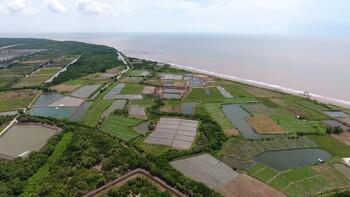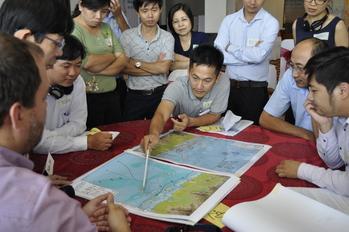Context
The Mekong Delta, the livelihood of 17 million people, is one of the regions hardest hit by the effects of climate change. These impacts include increasing sea level rise, but also rising temperatures and increasing extreme weather events. Land sinking on the one hand and sea-level rise on the other are leading to increasing salinisation of freshwater and flooding, particularly in the coastal region and along the Mekong River. The main consequences of this situation are an increasing loss of land and water resources. Inadequate land and water management, the construction of dikes for flood protection and the increase of hydroelectric dams – particularly in the upper Mekong as well as the investment policy for economic development of the Mekong Delta are increasing stress on the complex ecosystem. Urban infrastructure is increasingly beyond its limits due to increasing frequency and intensity of floods combined with an insufficient absorption capacity of drainage systems, an unsystematic drainage planning, increasing urban surface sealing and uncoordinated river basin management.
Objective
The climate-resilient management of the Mekong Delta is improved via established regional coordination mechanisms and the use of innovative technical solutions in rural and urban areas.

